Share
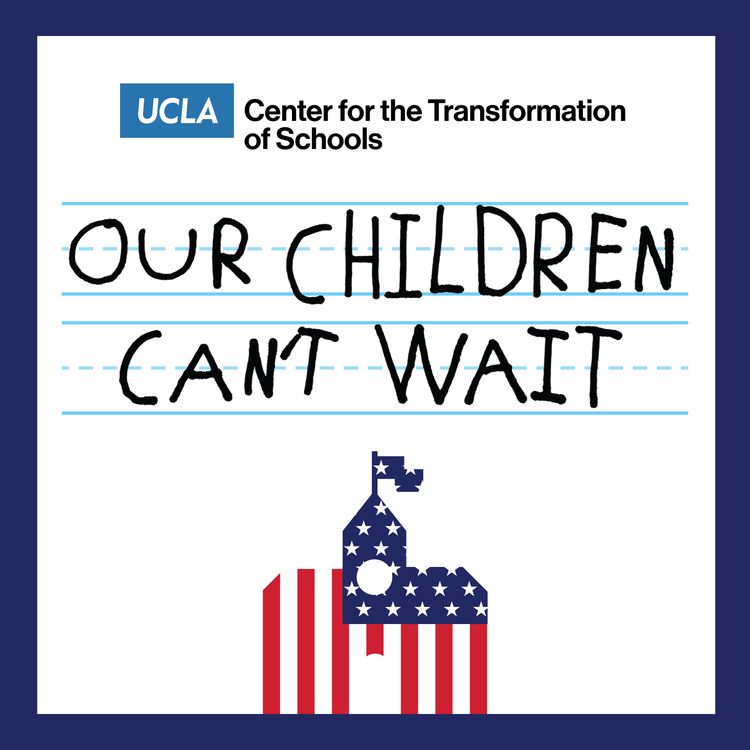
Among Us
Our Children Can’t Wait - Young People Driving Their Own Destiny
Dr. Joe Bishop discusses youth voices and youth organizing with social justice education researcher and scholar Dr. Justin Coles of the University of Massachusetts, Amherst.
As a teen, Justin saw his community change from racially diverse to predominantly Black. He questioned why the reputation of his high school was negatively affected by the change in its racial composition. This led him to pursue racial justice work centering on youth.
In this episode, he outlines to Joe the importance of learning accurate American history in order to answer the question: What are the realities of race and policy that affect us today? He also shares the importance of respecting youths’ agency instead of trying to control them.
Why are our current standards, systems, and policies disconnected from youth?
Special Guest: Justin A. Coles is an Assistant Professor of Social Justice Education at the University of Massachusetts, Amherst, in the Department of Student Development. At UMass Amherst, Justin also serves as the Director of Arts, Culture, and Political Engagement at the Center of Racial Justice and Youth Engaged Research (CRJ). At the CRJ, he is also the director of the Black Healing, Joy, and Justice Collective. Justin serves as Co-Editor of the academic journal Equity & Excellence and Education.
Our Children Can't Wait is a podcast by the Center for the Transformation of Schools in the School of Education and Information Studies at UCLA. Joe Bishop is the host. Elizabeth Windom is the Producer. Julia Windom is the Associate Producer. Geneva Sum is the Creative Director, and Senior Producer is Jay Woodward. Our Children Can't Wait is a companion to the book of the same name, Our Children Can't Wait. Available now from Teachers College Press and Amazon. Our Children Can't Wait is produced by Windhaven Productions and Bluejay Atlantic.
Join the CTS mailing list: new research, events, tools & resources, straight to your inbox.
Support the work of CTS with a financial gift here.
Follow CTS on Instagram, Twitter and LinkedIn, and share your thoughts with us by emailing ctschools@ucla.edu.
More episodes
View all episodes
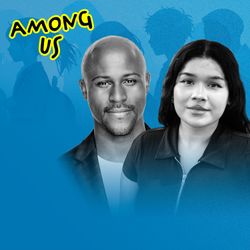
8. From Woe to ‘Whoa!’: Foster Youth Advocating for Change
39:43||Season 1, Ep. 8When it comes to system reform, the perspectives we should pay the most attention to are those who know the system best: individuals with lived experience. Our final episode of this season features two young changemakers using their experiences in foster care to help create a better reality for youth today. Eve Aaliyah Valdez is a youth activist with California Youth Connection, a youth-led organization that aims to transform foster care. Demontea Thompson is a doctoral candidate in the UCLA School of Education, a foster care researcher, and co-founder of Twinspire, a nonprofit organization that provides financial literacy to young people with foster care experience. How can we better prioritize basic needs for foster youth? What happens when we invite young people with lived experience to actively participate in research and reform processes? Guest speaker 1: Eve Aaliyah Valdez, Youth Activist, California Youth ConnectionGuest speaker 2: Demontea Thompson, Executive Director & co-founder, Together We Inspire; Doctoral Candidate & Researcher, UCLA Center for the Transformation of Schools, UCLA School of Education and Information Studies Interviewer: Angela James, Senior Project Scientist, UCLA Center for the Transformation of Schools Among Us is a podcast by the UCLA Center for the Transformation of Schools. Geneva Sum is the host and Creative Director. Angela James is the Interviewer. Elizabeth Windom is the Supervising Producer. Julia Windom is the Editor. Caitlyn McAloon is the Production Coordinator. J Woodward is the Senior Producer. Among Us is produced by Windhaven Productions and Bluejay Atlantic.Join the CTS mailing listFollow CTS or share your thoughts with us at ctschools@ucla.edu.Show Notes:Foster(ing) Youth in the California State University (UCLA CTS report, 2023).DCFS (Department of Children and Family Services)Children’s InstituteUnited FriendsAlan DettlaffDorothy RobertsChafee GrantTHP-Plus (Transitional Housing Program Plus)ILP (Independent Living Program)CASA (Court Appointed Special Advocates)Medi-CalSelf-harm crisis line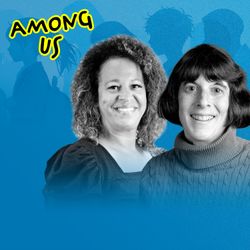
7. Aging Out: The Next Chapter After Foster Care
40:19||Season 1, Ep. 7Transition-age foster youth are young people between 16 and 25 years old who are transitioning out of the foster care system and into adulthood. Many of them are not prepared to live independently or have a strong support system to lean on. They may need help with finding stable housing or employment, paying for college, and curating supportive relationships they can rely on. Youth aging out of care could also be experiencing trauma and other challenges in addition to these transitions. We speak with Amy Dworsky and Liz Squibb about the common obstacles foster youth face as they age out of care, and actions we can take to better support youth and families. What happens after foster youth age out of care? What supports do they need to thrive as adults?Guest speaker 1: Amy Dworsky, Senior Research Fellow, Chapin HallGuest speaker 2: Liz Squibb, Senior Associate, Center for the Study of Social PolicyInterviewer: Dr. Joseph Bishop, Executive Director & co-founder, UCLA Center for the Transformation of SchoolsAmong Us is a podcast by the UCLA Center for the Transformation of Schools. Geneva Sum is the host and Creative Director. Joseph Bishop is the Interviewer. Elizabeth Windom is the Supervising Producer. Julia Windom is the Editor. Caitlyn McAloon is the Production Coordinator. J Woodward is the Senior Producer. Among Us is produced by Windhaven Productions and Bluejay Atlantic.Join the CTS mailing listFollow CTS or share your thoughts with us at ctschools@ucla.edu.Show Notes:Youth in Transition (Aging Out)Midwest Evaluation of the Adult Functioning of Former Foster Youth: Outcomes at Age 26 (Courtney, et al., 2011).Foster(ing) Youth in the California State University: Understanding the Vital Role of Campus Support Programs (UCLA CTS report, 2023).FUP (Family Unification Program)FYI (Foster Youth to Independence) ProgramAnnie E. Casey FoundationJim Casey Youth Opportunities Initiative Child Tax Credit
6. Breaking Through Barriers: Foster Youth Navigating Higher Education
31:52||Season 1, Ep. 6Nationally, only 3 out of 100 foster youth graduate with a bachelor's degree by age 26. Recent legislation in some states aims to increase this number by covering the full cost of in-state college attendance. However, students with foster care experience need a tremendous amount of support beyond financial aid to thrive in college and beyond, in areas such as life skills, housing and finances, self-care, and dependable relationships with trusted adults. Scholars Kizzy Lopez and Nate Okpych join us to uplift the real barriers that foster youth face in accessing higher education, navigating college and campus life, and support programs that some campuses offer for foster youth.How can we create better pathways for foster youth to attend college and support them through their college years?Guest speaker 1: Kizzy Lopez, Director of Student Success, Basic Needs & Retention, Fresno City College; former Program Coordinator, Renaissance Scholars Program, California State University, FresnoGuest speaker 2: Nate Okpych, Associate Professor, University of Connecticut School of Social WorkInterviewer: Audra Langley, Clinical Psychologist and Professor of Health Sciences, UCLA Semel Institute for Neuroscience and Human Behavior and UCLA David Geffen School of Medicine Department of Pediatrics; Director, UCLA TIES for Families; Co-Director, UCLA Pritzker Center for Strengthening Children and Families; Faculty Advisory Board member, UCLA Center for the Transformation of SchoolsAmong Us is a podcast by the UCLA Center for the Transformation of Schools. Geneva Sum is the host and Creative Director. Audra Langley is the Interviewer. Elizabeth Windom is the Supervising Producer. Julia Windom is the Editor. Caitlyn McAloon is the Production Coordinator. J Woodward is the Senior Producer. Among Us is produced by Windhaven Productions and Bluejay Atlantic.Join the CTS mailing listFollow CTS or share your thoughts with us at ctschools@ucla.edu.Show Notes:3% of foster youth graduate with a bachelor’s degree by age 26 Foster Youth Campus Support Programs in CaliforniaUCLA CTS report, Foster(ing) Youth in the California State University: Understanding the Vital Role of Campus Support ProgramsJohn Burton Advocates for YouthPost-Secondary Education Experiences and Attainment Among Youth With Foster Care BackgroundsNational Research Collaborative for Foster Alumni and Higher EducationCalifornians For Justice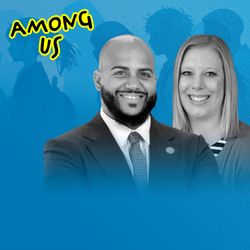
5. Statewide Policy & Collaboration for Foster Youth
36:29||Season 1, Ep. 5Get a glimpse into the inner workings of state government and how elected officials and state agencies are working to support foster youth. This episode highlights perspectives from two different states: Jamie Burciaga, Colorado State Coordinator for Foster Care Education, and Isaac G. Bryan, California Assemblymember (55th District – Los Angeles), who will share his experiences in foster care and the legislative changes he is advocating for on behalf of foster youth.How do supports for foster youth vary from state to state, and what promising practices can we uplift?How can we work through bureaucratic barriers to form fruitful partnerships?Guest speaker 1: Isaac G. Bryan, California State Assemblymember (55th District – Los Angeles)Guest speaker 2: Jamie Burciaga, State Coordinator for Foster Care Education, Colorado Department of EducationInterviewer: Joseph Bishop, Executive Director & co-founder, UCLA Center for the Transformation of SchoolsAmong Us is a podcast by the UCLA Center for the Transformation of Schools. Geneva Sum is the host and Creative Director. Joseph Bishop is the Interviewer. Elizabeth Windom is the Supervising Producer. Julia Windom is the Editor. Caitlyn McAloon is the Production Coordinator. J Woodward is the Senior Producer. Among Us is produced by Windhaven Productions and Bluejay Atlantic.Join the CTS mailing listFollow CTS or share your thoughts with us at ctschools@ucla.edu.Show Notes:Foster Care Education in ColoradoHighly Mobile YouthEvery Student Succeeds Act (ESSA)Child Welfare Education Liaisons in ColoradoCourt Appointed Special AdvocatesEducational Stability Grant ProgramColorado SB22-008Education Training Voucher programChild support arrears and Bryan’s billBryan’s bill to improve family placement ratesProject ReboundRising Scholars Network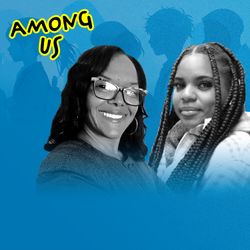
4. Lost in the System: Foster Youth in K-12 Schools
36:39||Season 1, Ep. 4Foster youth tend to have a rough time in school. They are more likely to change homes and schools multiple times midyear, and can miss a lot of classes for reasons beyond their control. We spoke to foster youth advocate Dylan Tatom, who shared her educational experiences as a foster student and how she discovered her voice. La Shona Jenkins, who leads foster youth educational services for Los Angeles County, expressed the importance of cross-sector collaboration and supporting each foster student’s unique needs.How can schools holistically support students in foster care? Guest speaker 1: Dylan Tatom, Youth Advisory Board Member, The Center for Fair FuturesGuest speaker 2: La Shona Jenkins, Project Director, Foster Youth Services Coordinating Program, Los Angeles County Office of EducationInterviewer: Joseph Bishop, Executive Director & co-founder, UCLA Center for the Transformation of SchoolsAmong Us is a podcast by the UCLA Center for the Transformation of Schools. Geneva Sum is the host and Creative Director. Joseph Bishop is the Interviewer. Elizabeth Windom is the Supervising Producer. Julia Windom is the Editor. Caitlyn McAloon is the Production Coordinator. J Woodward is the Senior Producer. Among Us is produced by Windhaven Productions and Bluejay Atlantic.Join the CTS mailing listFollow CTS or share your thoughts with us at ctschools@ucla.edu.Show Notes:Fair Futures Youth Advisory BoardAnnie E. Casey Foundation Jim Casey Youth Opportunities InitiativeLACOE's Foster Youth Services Coordinating Program (FYSCP)Department of Children and Family Services AB 130Juvenile Justice Crime Prevention Act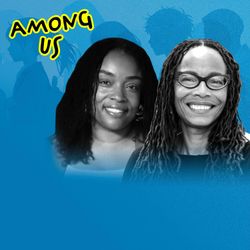
3. Supporting, Not Surveilling: Reimagining How We Help Families in Need
35:59||Season 1, Ep. 3Involvement in the foster care system is not random. Racism and social inequities are both reflected in and actively shape our foster care system that’s largely comprised of Black and Brown youth experiencing poverty. Foster care abolitionist Dorothy Roberts talks about the “family policing system” that is tied to historically oppressive and harmful practices, including slavery and the carceral system, and inflicts trauma on communities of color. Tamara Hunter, a foster care systems leader for Los Angeles County, champions a shift from mandated reporting to mandated supporting, and the need for a “third option” beyond either reporting or not reporting. What is the “foster care-to-prison pipeline,” and how are Black children being funneled into it? How can we build pathways to support mandated reporters, like teachers and health care professionals, to connect families with resources?Guest 1: Dorothy Roberts, Professor of Law and Sociology at the University of Pennsylvania, Director of the Penn Program on Race, Science, and Society, author of Torn Apart: How the Child Welfare System Destroys Black Families–and How Abolition Can Build a Safer World Guest 2: Tamara Hunter, Interim Executive Director, Los Angeles County Prevention and Promotion Systems Governing CommitteeInterviewer: Tyrone C. Howard, Pritzker Family Professor of Education to Strengthen Children & Families, School of Education & Information Studies; Director, Pritzker Center for Strengthening Children and Families; Faculty Co-Director, Center for the Transformation of Schools, UCLAShow Notes:Foster Care to Prison PipelineTorn Apart and Shattered Bonds by Dorothy Roberts“53% of black children will undergo a child welfare investigation before they reach age 18.” Kim, H., Wildeman, C., Jonson-Reid, M., & Drake B., 2017. Lifetime prevalence of investigating child maltreatment among US children. https://www.ncbi.nlm.nih.gov/pmc/articles/PMC5227926/ Prevention and Promotion Systems Governing Committee (PPSGC) in LA CountyChild Abuse Prevention and Treatment Act (CAPTA)“90% of reports made by school personnel were unsubstantiated when it came to any cases of neglect or abuse.” Fong, K., 2020. Getting eyes in the home: Child protective services investigations and state surveillance of family life. https://journals.sagepub.com/doi/abs/10.1177/0003122420938460?journalCode=asra upEND Movement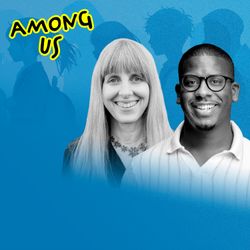
2. From Orphanages to Kinship Care: The Evolution of Foster Care in America
37:35||Season 1, Ep. 2Let’s unpack the U.S. foster care system as we know it. Child welfare and public policy historian Catherine E. Rymph provides a lesson on the origins of foster care and its evolution into the complex system that it is today. Child welfare systems change leader Sixto Cancel shares about his personal experiences of racism and abuse while in foster care that led him to found Think of Us. How did poverty and neglect–the pretense for most foster care referrals–become conflated? What would happen if we provided families in need with resources instead of reporting them? Interviewer: Angela James, Senior Project Scientist, UCLA Center for the Transformation of SchoolsGuest speakers:Catherine E. Rymph, author of Raising Government Children: A History of Foster Care and the American Welfare State; Dean, University of Missouri Honors CollegeSixto Cancel, CEO & Founder, Think of Us Among Us is a podcast by the UCLA Center for the Transformation of Schools. Geneva Sum is the host and Creative Director. Angela James is the Interviewer. Elizabeth Windom is the Supervising Producer. Julia Windom is the Editor. Caitlyn McAloon is the Production Coordinator. J Woodward is the Senior Producer. Among Us is produced by Windhaven Productions and Bluejay Atlantic.Join the CTS mailing listFollow CTS or share your thoughts with us at ctschools@ucla.edu.Show Notes:Social Security Act of 1935ADC (Aid to Dependent Children)AFDC Foster Care (Aid to Families with Dependent Children) 1962 reformThe Stuart FoundationThe Annie E. Casey FoundationThriving Families, Safer Children initiativeA Foster Care System Where Every Child Has a Loving Home | Sixto Cancel | TED Kinship CareThe Family First Prevention Services ActA Second Chance, Inc.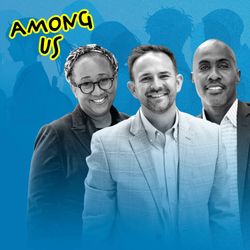
1. Who Are Foster Students? A Roundtable with UCLA Education Scholars
30:46||Season 1, Ep. 1Foster students face unique challenges in and out of the classroom and they deserve more of our attention. Leading education scholars Tyrone Howard, Joseph Bishop, and Angela James discuss the intersections of foster care with poverty, systemic racism, homelessness, punitive discipline, and the carceral system. Who is responsible for the well-being of foster youth? How can schools more equitably support students, no matter their circumstances? Host: Geneva Sum, Communications Director, UCLA Center for the Transformation of SchoolsRoundtable:Tyrone C. Howard, Pritzker Family Professor of Education to Strengthen Children & Families, UCLA School of Education & Information Studies; Faculty Co-Director, UCLA Center for the Transformation of SchoolsJoseph P. Bishop, Executive Director, UCLA Center for the Transformation of SchoolsAngela James, Senior Research Scientist, UCLA Center for the Transformation of SchoolsAmong Us is a podcast by the UCLA Center for the Transformation of Schools. Geneva Sum is the host, Creative Director and this episode’s interviewer. Elizabeth Windom is the Supervising Producer. Julia Windom is the Editor. Caitlyn McAloon is the Production Coordinator. J Woodward is the Senior Producer. Among Us is produced by Windhaven Productions and Bluejay Atlantic.Join the UCLA CTS mailing list.Follow CTS or share your thoughts with us at ctschools@ucla.edu.Show Notes:Our Children Can’t Wait by Joseph BishopLost Instruction Time in California Schools: The Disparate Harm from Post-Pandemic Punitive Suspensions. The UCLA Civil Rights Project. Child Welfare, Public Health and Domestic Violence. The UCLA Pritzker Center for Strengthening Children and Families.The California Community Schools Partnership ProgramUCLA CTS foster youth studies CA SB 307 – Fostering Futures: Increasing access and improving college affordability for foster youth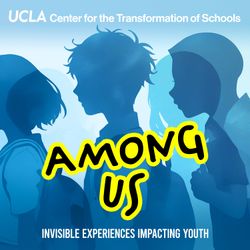
Introducing Among Us
02:28|Among Us from UCLA’s Center for the Transformation of Schools uplifts the experiences of students furthest from opportunity, and explores how systems and structures both in and out-of-school are either creating barriers or opportunities for young people.This season, we are going on a journey together through the foster care system. UCLA researchers unpack the foster system through conversations with young people, practitioners, scholars, advocates and philanthropy to better understand how youth and families are facing barriers to thrive–and what we all can do about it.Join us every Wednesday starting August 7th.